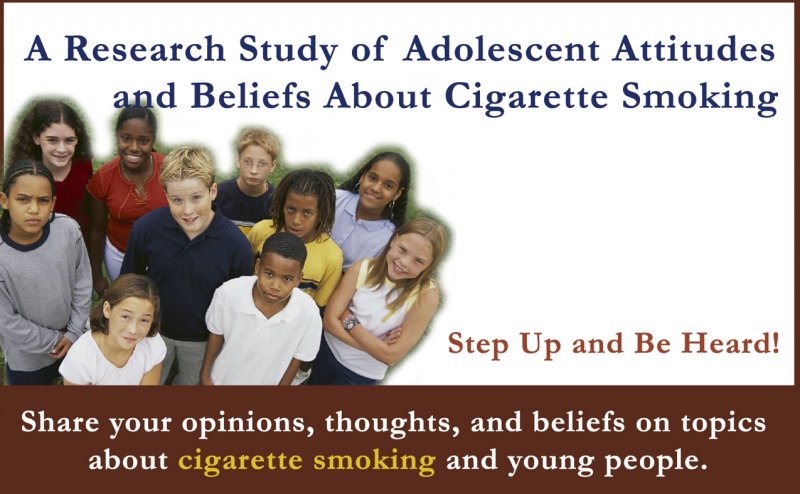Investigating Structural Health Inequities in Substance Use among Communities of Color

The Equity, Tobacco, and Health Outcome Solutions (ETHOS) Lab aims to elucidate the complex issues associated with the multi-level structural factors shaping the health and well-being of youth and young adult, racial and ethnic minoritized populations that reside in systematically oppressed environments.
Department: Behavioral and Community Health
Room Number: 1234U
Director: Craig S. Fryer
Office Phone Number: (301) 405-0818
Email: csfryer@umd.edu
The ETHOS Lab is housed in the Department of Behavioral and Community Health in the School of Public Health at the University of Maryland. The lab focuses on the structural determinants of health that shape substance use inequities, specifically tobacco and cannabis use among racialized youth and young adult populations.
Collaborators:
Store Audit of Neighborhood Tobacco Advertising and Availability (SANTAA) Study (Summer 2019)
Abstract: Alternative tobacco products (ATPs) such as little cigars, cigarillos, smokeless tobacco, and electronic nicotine delivery systems (ENDS) have a strong presence in the US retail environment. Electronic nicotine delivery devices (ENDS) are often advertised as less hazardous than the smoking of standard combustible cigarettes. African American smokers are less likely to report ever using ENDS compared to non-Hispanic White smokers. Yet, the use of specific consumer products has been shown to follow the density of advertising of those products and many communities are burdened with disproportionate tobacco advertising and availability.
Purpose: Using trained observers, this pilot project will examine if e-cigarette advertising is more prevalent in predominantly white neighborhood convenience stores and gas stations than in neighborhoods with a higher proportion of African American residents in the greater Washington, DC Metropolitan area.
Trauma, Incarceration, and Black Men’s Health (BMH) Study (Summer 2019)
Abstract: Black men are among the most underserved populations in the US with regard to access to quality mental health services, which contributes to poor health outcomes. Additionally, black men must both confront and heal from the effects of violence and trauma, including experiences with incarceration. Incarceration, and reentry after incarceration, is a common experience for young, low-income black men across their life course (Tierny, 2014). Thus, we need a better understanding of the effects of trauma and violence on the mental health of black men from their perspective to develop more comprehensive interventions salient to their daily life experiences.
Purpose: This pilot study aims to better understand the effects of trauma and violence on men’s health, including incarceration-related traumas. The two-phase, qualitative study, will utilize both focus groups and in-depth interviews with adult black men in two settings: a barbershop and a correctional facility in Maryland.
Tobacco Involvement Mixed Methods (TIMM) Study (2015-present)
Abstract: Health disparities continue to exist between and within populations and little is known about the causes of population differences observed in tobacco use, nicotine dependence, and related diseases. More importantly, an age-race paradox exists in which African American youth consistently report lower prevalence of tobacco use than their Caucasian counterparts, yet African American adult smokers suffer a disproportionate burden of tobacco-related morbidity and mortality. Nicotine dependence is the most formidable impediment to quitting smoking among adolescents. Despite the recognition of the central role of nicotine dependence in smoking cessation, there is a paucity of information about how nicotine dependence is expressed among youth who smoke. For these reasons, researchers have called for additional research to address the insufficient understanding of and gap in the literature on adolescent nicotine dependence and its impact on cessation.
Study Purpose: The aim of this study is to examine critical factors of nicotine dependence among urban African American youth utilizing individual and group (class) trajectory analysis (Study 1) as well as mixed methods research, including the use of a tobacco health survey, focus groups, and in-depth interviews (Study 2) to elucidate the complexities of adolescent nicotine dependence.
Marijuana Health Outcomes Tobacco Environment Pilot (MHOTEP) Study (2009-2011)
Abstract: Tobacco use is still an important health issue among young people. For example, the majority of adult smokers began smoking before the age of 18 and millions of youth are current smokers, including 27% of high school boys and 17.18% of high school girls. Additionally, we now know that dependence can manifest during adolescence before the onset of daily smoking and that young people are using multiple tobacco products, including cigarettes and little cigars. Most notably, racial and ethnic communities are targeted with pro-smoking advertising and suffer a disproportionate burden of tobacco-caused disease and mortality. Research that addresses factors that shape tobacco use among young populations is necessary to effectively enhance and develop both prevention and treatment modalities tailored for this often ignored and vulnerable group of smokers.
Study Purpose: The aim of this study is to gain a greater understanding of the experiences of young smokers with smoking (both tobacco and marijuana), including the influence of social (family, friends) and environmental (neighborhood) factors such as stress, tobacco advertising, social sources of cigarettes, and the use of other tobacco products.
Dr. Fryer obtained his MPH from the University of Pittsburgh in Behavioral and Community Health Sciences with a concentration in child welfare and his DrPH in Sociomedical Sciences from Columbia University with an emphasis in the social determinants of health behavior and health outcomes.
Trained as behavioral scientist, Dr. Fryer utilizes mixed methods research designs to examine the sociocultural context of health and health status, with an emphasis in community-engaged research. His work focuses on racial and ethnic health disparities in substance use and dependence, specifically tobacco and marijuana use among urban youth and young adult populations.
Currently, Dr. Fryer is the site PI and Co-Investigator on two, NIH-funded (both NIDA and NIMHD) studies assessing Black and Hispanic young adults’ appeal to flavored little cigar and cigarillo (LCC) product repackaging. Equally important, these studies examine the young adults' reactions to rhetoric about over-policing and illicit cigar trade to better understand if these tobacco industry strategies influence their flavor ban perceptions and predict future LCC smoking behaviors.
Dr. Fryer completed a five-year, NIH-funded (National Cancer Institute) K01 career development award, Correlates of Nicotine Dependence among Urban African American Youth. Additionally, he was a Co-Investigator on a FDA/NCI-funded, Assessing Risk Perceptions for Small Cigars/Cigarillos among Young Adults and three grants within the Center for Health Equity funded by the National Institute for Minority Health and Health Disparities (NIMHD).
Collateral research endeavors include: Black men’s health; intersectionality research; and justice-focused recruitment and retention of minoritized communities in research.
Recent Selected Publications
Moore, SP, Masyn, KE, FRYER, CS, Lee, E, Gunzler, D, Trapl, E, Shang, C, Sterling, KL. (2023). Recency Measures Matter: Variability in Reported Last Use of Tobacco and Marijuana Products among a Nationally Representative Study of U.S. Young Adults, Addictive Behaviors, 144, 107746.
Sterling, K, Masyn, K, Moore, SP, FRYER, CS, Trapl, E, Shang, C, Gunzler, D. (2022). Tobacco Whack-A-Mole: A Consumption Taxonomy of Cigar and Other Combustible Tobacco Products Among a Nationally Representative Sample of Young Adults, IJERPH, 19 (22), 10.3390/ijerph192215248
Lee, E, Moore, SP, Trapl, E, FRYER, CS, Gunzler, D, Sterling, KL. (2022). Changes in Little Cigar and Cigarillo Use during the COVID-19 Pandemic: A Cross-Sectional Analysis of a Nationally Representative Sample of Young Adult Users, IJERPH, 19(15), 8933.
Phan L, Kuo, C, FRYER, CS, Smith-Bynum, M, Clark, PI, Butler, J. (2021). ‘We’re not gonna have a big quit of loose ones are around’: African American smokers’ beliefs concerning single cigarette use reduction, Health Education Research, 36(4), 422-433.
D’Silva, J, O’Gara, E, FRYER, CS, Boyle, R. (2021). “Because There's Just Something About That Menthol”: Exploring African American Smokers’ Perspectives on Menthol Smoking and Local Menthol Sales Restrictions, Nicotine and Tobacco Research, 23(2), 357-363.
Seaman, EL, Howard, DE, Green, KM, Wang, MQ, FRYER, CS. (2019). A Sequential Explanatory Mixed Methods Study of Young Adult Tobacco and Marijuana Co-Use. Substance Use and Misuse, 54(13), 2177–2190.
Seaman, EL, Green, KM, Wang, MQ, Quinn, SC, FRYER, CS. (2019). Examining Prevalence and Correlates of Cigarette and Marijuana Co-Use among Young Adults Using Ten Years of NHANES Data, Addictive Behaviors, 96, 140-147. doi.org/10.1016/j.addbeh.2019.04.014.
Chen, JC, Green, K, FRYER, CS, Borzekowski, D. (2019). Perceptions about e-cigarette Flavors: A Qualitative Investigation of Young Adult Cigarette Smokers Who Use e-Cigarettes, Addiction Research & Theory, doi.org/10.1080/16066359.2018.1540693.
Trapl, ES, Koopman Gonzalez, SJ, FRYER, CS. (2018). Adolescent Dual-Product Users: Acquisition and Situational Use of Cigarettes and Cigars, Drug and Alcohol Dependence, 188:356-363.
Cohn, AM, Johnson, AL, FRYER, CS, Villanti, AC. (2018). Marijuana Use Predicts Onset of Current Little Cigar Use in a National Sample of US Young Adults, Drug and Alcohol Dependence, 190, 235-241. doi.org/10.1016/j.drugalcdep.2018.01.020
FRYER, CS, Seaman EL, Clark RS, Plano Clark VL (2017). Mixed methods research in tobacco control with youth and young adults: A methodological review of current strategies. PLoS ONE 12(8): e0183471.
Sterling, KL, FRYER, CS, Pagano, I, Fagan, P. (2017). Flavored Cigar Misconceptions and Uncertainty: Identifying At-Risk Smokers, Tobacco Regulatory Science, 3(2 Suppl 1): S17-S30.
Trapl, ES, O'Rourke-Suchoff, D, Yoder, LD, Cofie, L, Frank, JL, FRYER, CS. (2017). Youth Acquisition and Situational Use of Cigars, Cigarillos, and Little Cigars: A Cross-Sectional Study. American Journal of Preventive Medicine, 52(1): e9-e16.
Sterling, KL, FRYER, CS, Pagano, I, Jones, D, Fagan, P. (2016). The Association between Menthol-Flavored Cigarette Smoking and Flavored Little Cigar and Cigarillo Use among African-American, Hispanic, and White Young Adult Smokers, Tobacco Control, 25 (Suppl 2): ii21-ii31.
Sterling, KL, FRYER, CS, Pagano, I, Fagan, P. (2016). Little Cigars and Cigarillos (LCCs) Use among Young Adult Cigarette Smokers in the U.S.: Understanding Risk of Concomitant Use Subtypes, Nicotine and Tobacco Research, 18(12): 2234-2242.
FRYER, CS, Passmore, SR, Maietta, R, Petruzzelli, JM, Casper, EC, *Brown, NA, Butler, JB, Garza, MA, Thomas, SB, Quinn, SC. (2016). The Symbolic Value and Limitations of Racial Concordance in the Recruitment of Minority Populations in Research. Qualitative Health Research, 26(6), 830-841.
Sterling, KL, FRYER, CS, and Fagan, P. (2016). “The Most Natural Tobacco Used”: A Qualitative Investigation of Young Adult Smokers’ Risk Perceptions of Flavored Little Cigars and Cigarillos (LCCs). Nicotine and Tobacco Research, 18(5), 827-833.
Sterling, KL, FRYER, CS, Nix, M, and Fagan, P. (2015). Appeal and Impact of Characterizing Flavors on Young Adult Small Cigar Use. Tobacco Regulatory Science, 1(1), 42-53.
Lab News
Summer 2024
Dr. Fryer presented the keynote address at the 8th Annual Maryland Tobacco Control Conference in Lithonia, MD. His research presentation, Moving Beyond Symbolic Gestures: The Respectful Engagement of Historically Excluded Communities in Tobacco Research, highlighted the predatory tactics employed by the tobacco industry to appeal to consumers of color. Dr. Fryer's remarks were well-received and have fostered new partnerships in the fight against the influence of the commercial tobacco industry.
Summer 2019
Undergraduate students Shelby Lawanson and Chinedu Nwabuisi join the ETHOS (formerly the YADIRA) lab. Both students will work with Dr. Fryer on the SANTAA study, examining racial disparities in the advertisement and sale of tobacco products in Washington D.C.
May 2019
Dr. Joanne D'Silva completes her PhD in Behavioral and Community Health from the University of Maryland, School of Public Health.
May 2018
Dr. Elizabeth Seaman completes her PhD in Behavioral and Community Health from the University of Maryland, School of Public Health.
Summer 2016
This summer Ms. D'Silva is a Research Fellow at the Schroeder Institute for Tobacco Research and Policy Studies at the Truth Initiative in Washington, DC. The Schroeder Institute uses rigorous science to identify the most effective means to minimize the harms of tobacco use, measure the effectiveness of interventions and identify best practices for tobacco control. Working with investigator Dr. Amy Cohn, Ms. D'Silva's work will examine racial and ethnic differences in initiation of tobacco use among young adults aged 18-34.
Ms. Seaman recently began a predoctoral Cancer Research Training Award (CRTA) Fellowship at the National Cancer Institute in Rockville, MD. Ms. Seaman’s fellowship is in the Tobacco Control Research Branch within the Behavioral Research Program of the Division of Cancer Control and Population Sciences. At NCI, Ms. Seaman is working under the mentorship of Dr. Stephanie Land on several projects related to grants administration and research within tobacco control and cancer screening.
May 2016
Dr. Fryer, Ms. Seaman and Ms. D’Silva traveled to Chicago, IL to present research at the 2016 Society for Nicotine and Tobacco Research Annual Meeting.
- Dr. Fryer presented a poster, "Does Cigar Use Predict Marijuana Use Among U.S. Young Adults? Evidence from AddHealth"
- Ms. Seaman presented a poster, "'Ain't Nothing Easy About Quitting: Perspectives on Tobacco Use and Cessation from Young Black Smokers"
- Ms. D’Silva presented on “Correlates of Menthol Cigarette Use among American Indian Smokers in Minnesota” and in a pre-conference workshop on “Building an evidence base for reducing smoking disparities between indigenous and non-indigenous peoples.” She enjoyed networking with indigenous research from around the globe and connecting with old colleagues and friends.
October 2015
Ms. D’Silva presented a poster entitled “An Examination of Trends in Tobacco Disparities by Socioeconomic Status in Minnesota” at the National Conference on Tackling Tobacco Use in Vulnerable Populations in Bethesda, MD. She also had the honor of meeting former acting Surgeon General, Boris Lushniak.








